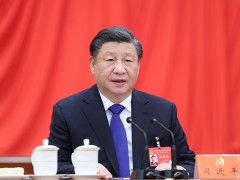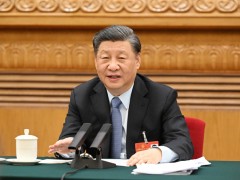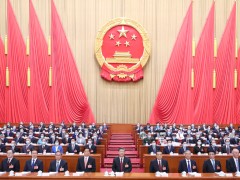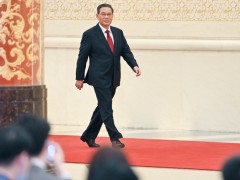Australia's recent attempts to ramp up its defense spending, including seeking to acquire nuclear submarines through the AUKUS deal, have shown an increasing aggressiveness, Chinese observers said after Australia on Tuesday pledged increased defense spending.
Australia also said it will boost efforts to firm up diplomatic ties with neighboring Southeast Asian and Pacific nations, trying to counter "China's growing economic and strategic influence in the region," according to a Reuters report.
Australian Prime Minister Anthony Albanese's first budget since his Labor government was elected in May lifts funding for defense by 8 percent in the fiscal year ending June 2023 and to more than 2 percent of GDP through to mid-2026, Reuters reported.
Canberra increased its military spending budget, but this is not matched by its national strength, international standing and its own security environment, Chen Hong, president of the Chinese Association of Australian Studies, told the Global Times on Wednesday.
"based on Australia's geographical location, its national defense policy has been mainly to defend the homeland, but its pledged increase in defense investment, including the attempt to acquire nuclear submarines through AUKUS, has shown increasingly aggressiveness," Chen said.
Australia's China policy has gone beyond partisan disputes, the observer said. "Although the Labor government has different attitudes from the previous government on many issues, it is still closely aligned with the US 'Indo-Pacific Strategy' and continues to be an important pawn of Washington in containing China," Chen stressed.
Australia's budget on Tuesday included plans to boost foreign aid by A$1.4 billion ($0.91 billion), with A$900 million for Pacific Island countries (PICs) and A$470 million for Southeast Asia over four years as Australia seeks to improve relations with its smaller neighbors, according to media reports.
The Australian government will also appoint a special envoy to Southeast Asia and establish a Southeast Asia office within the foreign affairs department to coordinate whole-of-government efforts across the region.
Australia's late, hypocritical kindness to the PICs came after China signed a security pact with the Solomon Islands and strengthened its cooperation with the PICs based on equality and mutually benefits.
In order to suppress China's growing influence in the Pacific, Australia has spared no efforts to smear the cooperation between China and PICs in the region while partnering with Washington in multilateral blocs including the QUAD, which includes Japan and India, and AUKUS, which includes the UK, observers said.
The budget's offer of aid to PICs also reflects Australia's ambition to become not just a regional military power, but also a regional "hegemon," Chen believes. He noted that since the Albanese administration took office in May, high-level officials have visited PICs frequently and engaged in active diplomatic activities, which are also aimed at containing China and defending its hegemony in the region.
The observer revealed that there have always been two tendencies in Australia's foreign strategy - opportunism and adventurism. And the opportunism was exposed in comments made by the country's foreign minister Penny Wong on Tuesday, Chen said.
The Australian foreign ministry said in budget papers on Tuesday that "In managing relations with China, we will pursue our objectives in a calm and consistent manner."
"Where we can, we will engage constructively with China to address shared challenges like climate change. Domestically, we will work with key stakeholders to build resilience and social cohesion," Wong stated, according to a Reuters report on Tuesday.
"At present, Australia is facing difficulties in its domestic economy. The Australian government obviously does not want to decouple from China immediately. It still hopes to maintain trade relations with China and to cooperate in areas such as climate change," Chen said. "These are profitable for Australia."
As for the potential development of China-Australia relations, Chen believes that so far, the substantive actions taken by Canberra to warm ties are far below Beijing's expectations. "China has made it clear that it wants to use the 50th anniversary of the establishment of the bilateral diplomatic relations as an opportunity to made concrete efforts to ease tensions, but Australia has acted not actively and even made multiple provocative statements against China," Chen noted.



